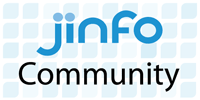 Time to Review Your Information Database
Time to Review Your Information Database
Jinfo Blog
29th October 2013
Abstract
A review of the usage and usefulness of your information database should be carried out regularly, advises Rachael Elliott. She provides advice for those considering changing to a new source and tips on how to ensure corroboration, depth and accuracy of information when using social media channels alongside traditional databases.
Item
 Do Your Research Resources Match Business Need?
Do Your Research Resources Match Business Need?
A research department should use research resources which are most closely aligned to match business need. It may seem an obvious statement but many businesses hold on to legacy information databases simply through a reluctance to change or purely due to a lack of time to seek other alternatives.
Information databases are expensive resources, and a regular review of tools available to the business can help a firm save as much as the equivalent of employing a number of full-time staff.
How are Employees Using Information Databases?
Whilst an expensive database may have suited business need a decade ago, changing employee habits and the fast-changing world of online research almost certainly means a review is needed. Are employees merely pulling off company profiles from a database with thousands of other resources? Are staff already using Google News for the majority of their own research but would welcome a bespoke industry newsletter delivered? Is having access to “as it is happening” news more crucial than a 200 year archive?
Consider a Change
Losing an incumbent database is likely to strike fear through many employees – and ironically, it will be the information workers who will fear it most. However, the potential cost savings should more than make up for it. If most employees are already using Google News to access the stories they need, consider removing firm-wide access to an expensive news resource and allowing access to only those who need it.
If staff are fishing for company or employee profiles in information databases, a subscription to a resource like Factiva Companies & Executives might be more appropriate than access to a news database. Just ensure employees are consulted throughout any process of change with any concerns addressed.
Don't Write Off Social Media as an Information Resource
Whilst using social media as a news resource should always come with a “handle with care” warning, the news and intelligence which can be gleaned from a resource such as Twitter can provide insight from alternative points of view – often before stories are even picked up by newswires. (Read more about social media as a news source in The Story Behind the Headline - Twitter and Google Aim for the Truth.)
Permanent searches can be set up on Twitter applications such as TweetDeck to monitor for mentions of a company name – invaluable for both monitoring the competition and for a company’s own reputation management. Most newspapers also now release breaking articles to Twitter, effectively turning Twitter into a news aggregator in itself.
Conclusion
Changes to an information source should never, however, be implemented without serious thought. Losing a news resource like factiva.com or LexisNexis might be a favourable act for the company balance sheet but could have serious business consequences. No longer having access to certain journals or losing access to vast historical news archives could see researchers spending hours scrabbling around for information which they could have previously accessed within seconds.
The information world is changing, but we should never become complacent. With news being increasingly generated from non-reviewed resources, ensuring the corroboration, depth and accuracy of information is now more crucial than ever.
FreePint Subscribers can log in now to find out more about the changing landscape of business information sources by reading Rachael's article The Online Information Researcher of 2014: Beyond News Aggregation.
Editor's Note: Beyond Aggregation
This article is part of the FreePint Topic Series: Beyond Aggregation, which runs from October to November 2013. Register your interest, and you'll get pre-notification of when registration opens for any webinars in this series, as well as a free copy of the FreePint Report: Buyer's Guide on News Content when we publish in November.
Platinum Sponsors:
|
Platinum Sponsor - Northern Light
|
Platinum Sponsor - Attensa
|
- Blog post title: Time to Review Your Information Database
- Link to this page
- View printable version
- The Online Information Researcher of 2014: Beyond News Aggregation
Friday, 25th October 2013 - Product Review of M-Adaptive: Executive Summary
Tuesday, 22nd October 2013 - Market Map: the Options in News Aggregation & Beyond
Thursday, 10th October 2013 - News Aggregation Solution Gives City Law Firm RPC a Competitive Edge
Monday, 7th October 2013 - The Story Behind the Headline - Twitter and Google Aim for the Truth
Monday, 2nd September 2013 - Beyond the Pale: Researching Non-Text Resources and Grey Literature
Wednesday, 12th June 2013 - The Big Free Three for News: Sources, Coverage and Content
Tuesday, 25th September 2012
- FreePint Series Keeps You On Top of the Changing Landscape in News Aggregation
Monday, 14th October 2013
Vendor adoption of AI
Community session
23rd May 2024
AI prompting and AI-sourcing, US private companies, and Jinfo on YouTube
Blog posting
10th April 2024
April 2024 Update
YouTube video
10th April 2024
- AI prompting and AI-sourcing, US private companies, and Jinfo on YouTube
10th April 2024 - AI practical actions, prompting and outsourcing
6th March 2024 - GenAI and ESG wisdom of the Jinfo crowd
13th February 2024
- Jinfo Community session (TBC) (Community) 20th June 2024
- Vendor adoption of AI (Community) 23rd May 2024
- Offshore, outsource or AI-source? (Community) 16th April 2024



